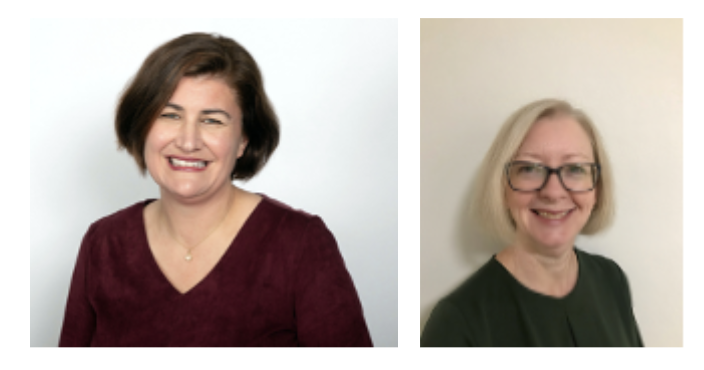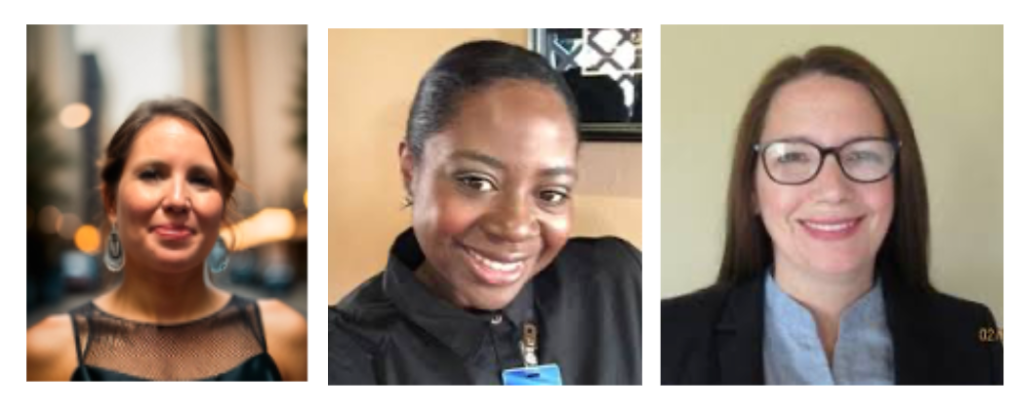This week, IEN features the work of scholars focused on research practice partnerships and racial justice in educational leadership. This is the ninth and final post in a series featuring excerpts of interviews with presenters participating in the Educational Change Special Interest Group sessions at the Annual Conference of the American Educational Research Association in Philadelphia last week. This post includes presenters from the session titled: “Developing Authentic Research Practice Partnerships (RPPs) for Educational Change.” For previous posts in this series, see: Practices, Programs and Policies for Instructional Coaching, Transforming Organizational Systems for Educational Equity, Organizational Change and Equity in Professional Learning, Arts and Sports Programs, and Summer Camps, Driving Change in Higher Education, Racial Justice and Educational Equity, Teachers as Agents of Change, Decolonizing Professional Learning and (Re)Conceptualizing Change at Scale. These interviews are part of the Lead the Change series produced by AERA’s Educational Change Special Interest Group. The full interviews can be found on the LtC website. The LtC series is produced by Alex Lamb (Outgoing Series Editor) and Liz Zumpe (Incoming Series Editor).
Supporting schools to be leadership teams: Three Australian ‘me to we’ Research-Practice Partnerships — Christine Grice & Fiona Davies, The University of Sydney
Lead the Change (LtC): The 2024 AERA theme is Dismantling Racial Injustice and Constructing Educational Possibilities: A Call to Action. How does your research respond to this call?
Christine Grice & Fiona Davies (CG & FD): Australia is one of the only Commonwealth countries without a treaty with its First Nations peoples. We acknowledge that in the country called Australia, sovereignty has never been ceded. We begin this issue of ‘Lead the Change’ by acknowledging the Traditional Owners of Gadigal land on which we co-construct educational possibilities together that embody change through respect, listening, consultation, and changing ourselves. This research explores research practice partnerships (RPP) between two researchers and three diverse Australian schools that form our cases over a three-year period. The overarching goal of our partnerships was for leaders to work well together to support the development of people, pedagogy, and wellbeing in their school aligned with strategic planning. Our bespoke work developed coherence over time in each context.
Over the last few years, Australian school leaders have told us that increasing workload demands for their teaching teams and themselves is resulting in burnout. They have told us about their struggles to implement constant change, often imposed on them with minimal consultation, and about their limited agency in managing workloads. These perceptions are echoed in international research on teacher wellbeing such as the OECD Teaching and Learning International Survey. There is a sense of more and more work being added, and nothing being taken away. Decades of research on occupational stress tells us that a long-term imbalance between work demands and the resources available to meet those demands affects both wellbeing and performance.
The Australian Institute for Teaching and School Leadership (AITSL) has only recently recognised middle leaders, as ‘teachers who lead’ in a different sphere from principals, reinforcing an unequal, and ununified stance for leading learning together. School leaders have also told us about the limited opportunities to reflect together on their values and purpose as a school. They described doing their best within their own departments but wanting more opportunities to collaborate across departments and with leaders at all levels in their schools. According to TALIS (2018) collaboration is 10% lower in Australian schools than in other OECD countries. When middle leaders develop their full capacity to work together with leaders, teachers, and students, increasing their sphere of influence, they lead beyond the middle (Day & Grice, 2019) and inspire others to further develop their learning strengths through professional relationships supported by carefully planned school structures, communicative learning spaces (Sjolie, Francisco, & Langalotz, 2019), and architectures over time.
We have worked with schools where leadership is more or less distributed, and in all cases, leaders clearly relished the opportunities created by professional learning to collaborate. Middle leaders were ready and willing to contribute to school level change when they felt safe to do so. Our RPPs enable school leaders and their teams to collectively design and craft satisfying and sustainable work aligned with goals, building habits that support communication, reflection, resolution, and action.
Leaders clearly relished the opportunities created by professional learning to collaborate.
LtC: What are some of the ideas you hope the field of Educational Change and the audience at AERA can learn from your work related to practice, policy, and scholarship?
CG & FD: Change involves seeing leadership, pedagogy, and wellbeing in new ways.The aim was for middle leaders to develop a collective framework for long term change, as they made decisions about their interactions, cultural norms, and improvement practices and develop knowledge and skills that could enable them to lead learning together in a sustainable way.
Change is also rooted in values and purpose. Our beliefs about leadership: that leading is a practice that happens in the intersubjective spaces between people who may have role titles and job descriptions, but focus more on working together to diffuse power, enabling them to lead together (Kemmis et al., 2014). Leading as practice is about purpose: the work to be done. The work is achieved through collaborative job crafting that creates clear processes for everyone to work together in accordance with their strengths, humanising and democratising research and leadership work (Penual, et al., 2020 p.663), turning collaboration from an oft overused term to practical action, where the social preconditions for collaboration are enabled.
Improving wellbeing outcomes for students, teachers, and school leaders can only be achieved through collaboration, and yet schools are not structured to collaborate easily, and the practices and purposes of collaborating are largely misunderstood. School effectiveness and improvement is based in action. Connecting the academic and wellbeing needs of students with a shared responsibility for knowing students, aligned with our values and the purpose of education in specific contexts, moves the rhetoric about collaboration and wellbeing to action, by addressing not only why we should work differently, but how to redesign leading learning together in schools, using practice approaches.
Sustainable change involves desiring new ways of working and leaning on protocols to revisit ways of working in a cycle of planning, doing, and evaluating (or saying, doing, and relating). Our RPPs supported leadership teams to grow in their collective efficacy, and were dependent upon the leadership conditions, interactions, and beliefs within each of the schools. The World Health Organisation emphasises the importance of psychosocial wellbeing in the workplace, and there is increasing international recognition of the importance of managing psychosocial risks in workplaces. This is reflected in international standards such as ISO 45003:2021 (Guidelines on managing psychosocial risk) and new regulatory requirements in Australian workplaces including schools. A healthy school workplace is where teachers and leaders promote and sustain the health, safety, and wellbeing of all workers, including the organisation of work and workplace culture. It is no longer acceptable to have unsustainable workloads in schools. Working together using collaborative job crafting equips teachers and leaders with proactive strategies that enhance leading wellbeing in schools. Findings support the growing body of international evidence demonstrating the impact of research/policy/practice collaboration and partnerships on improving the effectiveness of education in schools, particularly in diagnosing school readiness for RPPs.
Change flows over to students and communities. Australian teachers who reported participating in joint activities across classes/age groups, also reported higher use of cognitive activation practices in their classrooms.
Navigating the Leadership Pipeline; Tenets for Effectively Navigating the K12 System for Traditionally Marginalized Candidates — LeAnne C. Salazar Montoya, University of Nevada; Brione A Minor-Mitchell, Clark County School District; Kristin L. Kew, New Mexico State University
Lead the Change (LtC): The 2024 AERA theme is Dismantling Racial Injustice and Constructing Educational Possibilities: A Call to Action. How does your research respond to this call?
LeAnne C. Salazar Montoya, Brione A Minor-Mitchell & Kristin L. Kew (LSM, BMM & KK): Our research is a direct response to the 2024 AERA theme, “Dismantling Racial Injustice and Constructing Educational Possibilities: A Call to Action.” In the context of educational leadership, our study delves into the intricate challenges faced by traditionally marginalized candidates within the K12 system. By identifying and exploring effective tenets for navigating the leadership pipeline, our research aligns with the imperative to dismantle racial injustice. The study seeks to contribute actionable insights that can empower aspiring leaders from marginalized backgrounds, promoting inclusivity and equity within educational leadership. We delved into how schools aligned with the Kansas Can School Redesign Project reform goals by different characteristics, such as a school’s socioeconomic status, student racial composition, and location, among a few others. Our findings unveil some progress in reform aspirations.
LtC: What are some of the ideas you hope the field of Educational Change and the audience at AERA can learn from your work related to practice, policy, and scholarship?
LSM, BMM & KK: In terms of practice, our collaborative research aims to provide practical guidance for traditionally marginalized candidates navigating the leadership pipeline. It offers tangible strategies addressing systemic barriers and fostering inclusivity. By focusing on actionable steps, the study equips aspiring leaders with the tools to navigate challenges effectively. Regarding policy, the research advocates for nuanced adjustments recognizing and supporting the unique challenges faced by marginalized leaders, thereby fostering an environment conducive to their success. Scholarship-wise, the study significantly contributes to the existing body of knowledge by illuminating the experiences and strategies of traditionally marginalized candidates, enriching the discourse on educational leadership. We invite further collaboration and more education stakeholders to draw upon our research findings and evaluation methods in shaping the trajectory of education reform. We strive to contribute to the collective wisdom that propels educational progress and enhances the pursuit of student success goals in a broader educational reform landscape. Together, we can enrich the discourse and drive positive change in education.
Together, we can enrich the discourse and drive positive change in education.
References:
Supporting schools to be leadership teams: Three Australian ‘me to we’ Research-Practice Partnerships
Australian Institute for Teaching and School Leadership (2023). Reflecting on school leadership development Accessed at: https://www.aitsl.edu.au/docs/default-source/lead-develop/leading-for-impact-resources/system-sector-reflection-tool-pdf.pdf?sfvrsn=7edfff3c_2
Day, C., Grice, C. (2019). Investigating the influence and impact of leading from the middle: A school-based strategy for middle leaders in schools, (pp. 4-51). Sydney, Australia: The University of Sydney
Kemmis, S., Wilkinson, J., Edwards-Groves, C., Grootenboer, P., Hardy, I., and Bristol, L., (2014). Changing practices, changing education. New York: Springer.
Penuel, W. R., Riedy, R., Barber, M. S., Peurach, D. J., LeBouef, W. A., & Clark, T. (2020). Principles of collaborative education research With stakeholders: Toward requirements for a new research and development infrastructure. Review of Educational Research, 90(5), 627-674. https://doi.org/10.3102/0034654320938126
Sjolie, E., Francisco, S., & Langalotz, L. (2019). Communicative learning spaces and learning to become a teacher. Pedagogy Culture and Society 27(6):1-18, DOI:10.1080/14681366.2018.1500392
The OECD Teaching and Learning International Survey (TALIS) (2018). Accessed at https://www.oecd.org/education/talis/ World Health Organisation international standard Occupational Health and safety management ISO 45003:2021. Accessed at https://www.iso.org/standard/64283.html#:~:text=This%20document%20gives%20guidelines%20for,promote%20well%2Dbeing%20at%20work

